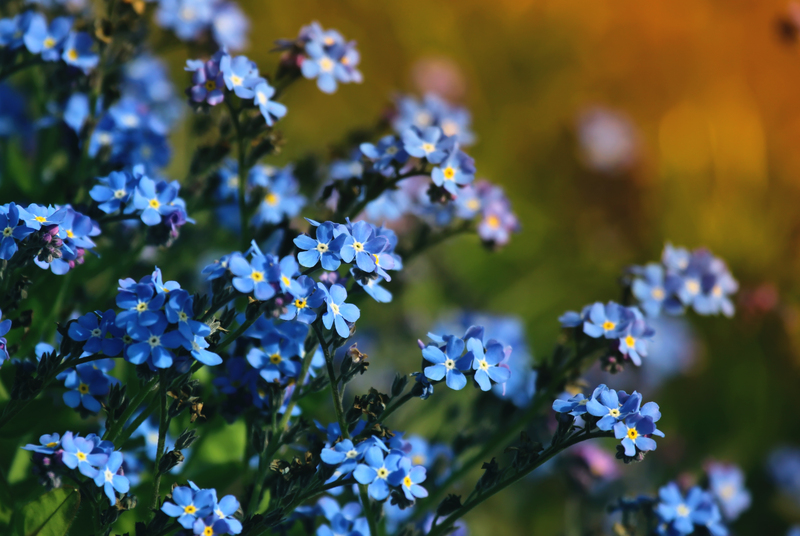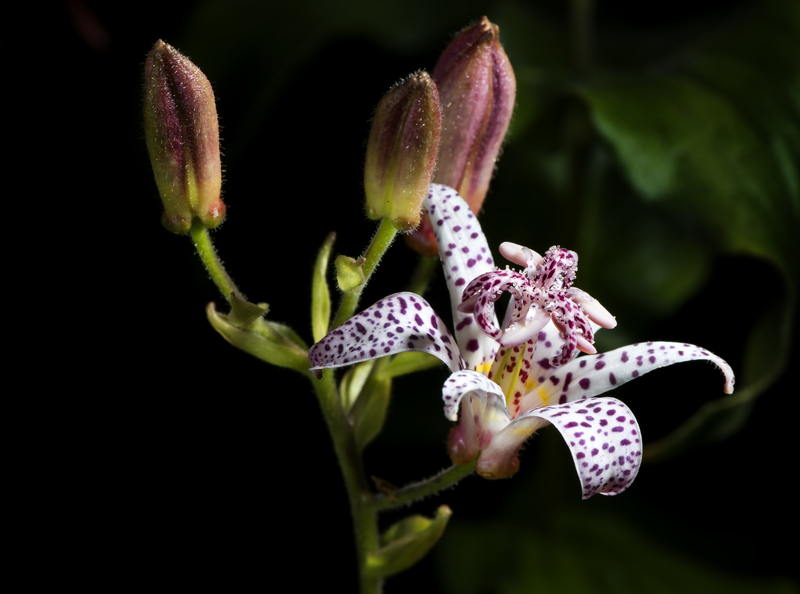From Seeds to Blooms: 9 Essential Gardening Tips for Beginners
Posted on 23/08/2025
From Seeds to Blooms: 9 Essential Gardening Tips for Beginners
Are you dreaming of turning your backyard into a colorful paradise? Or maybe you want to fill your balcony with lush, living greens? Whether you have a sprawling garden or a small patio, gardening is a rewarding activity for all. Ready to transform bare soil into a flourishing canvas of blooms? Our gardening tips for beginners will set you on the right path from the moment you sow your first seeds to the day your plants burst into vibrant color.
Why Start Gardening as a Beginner?
Gardening is not just about growing pretty flowers or harvesting homegrown vegetables. It's a wholesome experience that nurtures your body, mind, and environment. For beginners, starting a garden rejuvenates living spaces, promotes well-being, and gives a sense of accomplishment. But with abundant information and methods, where should you begin? This step-by-step guide will help you grow confidently from seed-sowing to full blooms.

9 Essential Gardening Tips to Grow from Seed to Bloom
-
1. Start Small and Plan Your Garden
One of the most important beginner garden tips is to start small. Don't overwhelm yourself with an ambitious, sprawling plot. Choose a manageable area and make a simple plan. Consider how much sunlight your location receives, the direction of the wind, and possible access to water. Draw a layout, mark where you'd like to place flowers, herbs, or vegetables, and identify the best gardening spots based on sun exposure and shade.
-
2. Choose the Right Seeds and Plants
Not all plants are equally easy to grow, especially for newcomers. Pick seeds and starter plants suited for your climate and hardiness zone. Opt for low-maintenance, fast-growing species like sunflowers, marigolds, zinnias, or leafy greens. Visit local nurseries and consult their advice--their experience will prove invaluable for selecting the best seeds for novice gardeners.
-
3. Understand Your Soil
Healthy soil is the secret to a thriving garden. Conduct a simple soil test--kits are widely available at garden centers. Check for fertility, drainage, texture, and pH. Amend your soil with organic material such as compost, well-rotted manure, or leaf mold. This boosts nutrients and enhances water retention, which is especially crucial when growing from seed. Never underestimate the power of good earth!
-
4. Master Sowing and Planting Techniques
For beginners, understanding how to plant correctly is vital. Always read seed packets--they contain crucial guidance on depth, spacing, and light requirements. Some seeds, like lettuce, need light to germinate and should not be covered, while others need darkness. Avoid crowding plants as it leads to poor air circulation and disease. When transplanting seedlings, handle them gently by the leaves (not the stem!), water them in, and provide gentle shading for a few days to reduce transplant shock.
-
5. Water Wisely
Water is life, but too much or too little spells disaster for your garden. Key watering advice for gardening beginners:
- Water early in the morning to minimize evaporation and prevent fungal diseases.
- Keep the soil consistently moist but never waterlogged.
- Use a soaker hose or watering can for gentler, targeted watering at the roots.
- Tap your finger an inch into the soil--if it feels dry, it's time to water.
-
6. Feed Your Plants
Fertilize plants to encourage robust growth and spectacular blooms. Use organic fertilizers like compost, worm castings, or fish emulsion for a gentle, natural nutrient boost. Apply fertilizer according to each plant's needs--overfeeding can cause more harm than good. Pay particular attention as seeds turn into seedlings and then to mature plants, adjusting your feeding routine as they grow.
-
7. Practice Good Garden Hygiene
Keeping your garden tidy isn't just about looks. Remove spent flowers, fallen leaves, and diseased stems to reduce the risk of pests or fungi. Deadheading (removing spent blooms) encourages more flowering and keeps plants healthy. Clean your tools after use to avoid spreading diseases, and always start with clean pots and fresh soil when sprouting seeds.
-
8. Keep an Eye on Pests and Problems
Even the most diligent beginners will encounter garden pests and plant diseases. Inspect your garden regularly--look under leaves, along stems, and near soil lines. Introduce beneficial insects like ladybugs, or use gentle, non-toxic sprays such as neem oil or insecticidal soap. For fungal issues, avoid overhead watering and increase plant spacing for air flow.
-
9. Be Patient and Enjoy the Journey
*Gardening rewards patience*. Don't be discouraged if your first attempt doesn't yield perfect results--plants are living things, and gardening is as much about learning as it is about growing. Take notes on what succeeds or fails in your garden. Each season brings different lessons, and your skills will bloom along with your plants!
More Helpful Beginner Gardening Tips and Tricks
- Label Everything: Use weatherproof tags to remember what and where you planted.
- Rotate Crops: If growing vegetables, rotate plant families each year to minimize pest buildup.
- Choose Perennials: For lasting color with less work each year, include perennial flowers.
- Compost: Start a compost bin to recycle kitchen scraps and create nutrient-rich soil amendments.
- Mulch: Spread organic mulch around plants to retain moisture, suppress weeds, and regulate soil temperature.
Frequently Asked Questions on Gardening for Beginners
What are the easiest flowers to grow from seed?
For beginner gardeners, some of the easiest and most rewarding flowers to grow from seed include sunflowers, zinnias, cosmos, marigolds, and nasturtiums. These varieties germinate quickly, have robust growth, and produce cheerful blooms all season.
How do I know when to water my garden?
Stick a finger about an inch into the soil. If it feels dry, it's time to water. Early morning watering saves water and prevents the risk of fungal diseases that thrive in wet, humid conditions.
Is it necessary to use fertilizer for new plants?
Young seedlings often benefit from mild, organic fertilizers. However, rich, well-amended soil can supply initial nutrients. Over-fertilizing can harm delicate sprouts, so always use fertilizers according to the instructions for beginner-friendly gardening.
What tools do I need to start a garden?
The basics for any novice gardener include a trowel, watering can or hose, hand fork, pruners, and gardening gloves. Start simple, and expand your toolkit as you gain experience.
Gardening for Beginners: A Season-by-Season Checklist
| Season | Essential Tasks |
|---|---|
| Spring |
|
| Summer |
|
| Autumn |
|
| Winter |
|
Gardening Glossary for Beginners
- Germination: The process by which a seed sprouts and begins growing into a plant.
- Hardiness Zone: A geographical region defined by climate, indicating which plants can thrive outdoors.
- Annual: A plant that completes its life cycle in a single growing season.
- Perennial: A plant that lives for more than two years, often blooming yearly.
- Mulch: Material spread over soil to retain moisture, suppress weeds, and regulate temperature.

Conclusion: Cultivating Success From Seeds to Blooms
Starting your gardening journey can feel daunting, but with these nine fundamental tips, even complete beginners can cultivate a thriving, beautiful garden. Remember to start small, plan thoughtfully, and enjoy the process. The joy of seeing seeds turn into vibrant blooms is unmatched, and every mistake is an opportunity to learn and grow.
As you nurture your plants, you'll also nurture your patience, attentiveness, and connection to nature. With the right techniques, growing from seed to bloom is achievable for anyone, no matter your space or experience. Happy gardening!
Start Today!
There's no better time than now to begin your own green adventure. Gather your seeds, roll up your sleeves, and let these gardening tips for beginners guide you from the first seedling to spectacular blooms. Your future flower-filled garden is just a step away!
Latest Posts
Transform Your Garden with Unique Hedge Shapes
Secrets to Keeping Your Orchids Blooming
Refining Your Garden with Hedge Trimming Techniques

